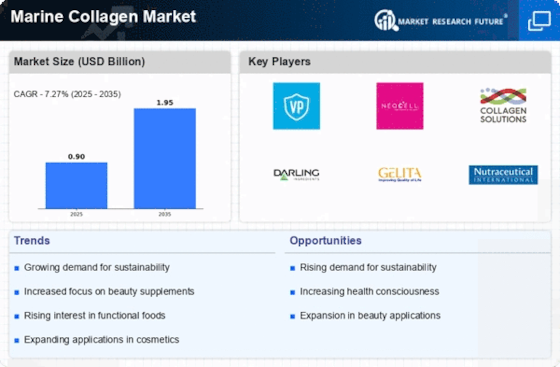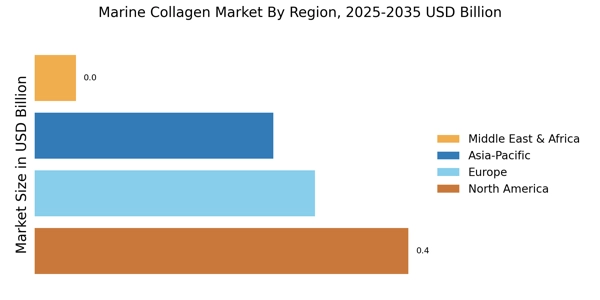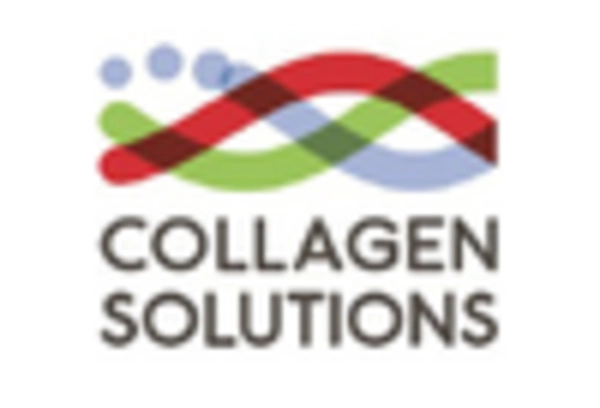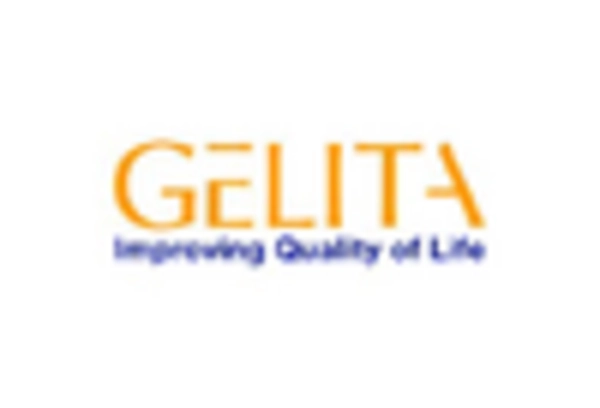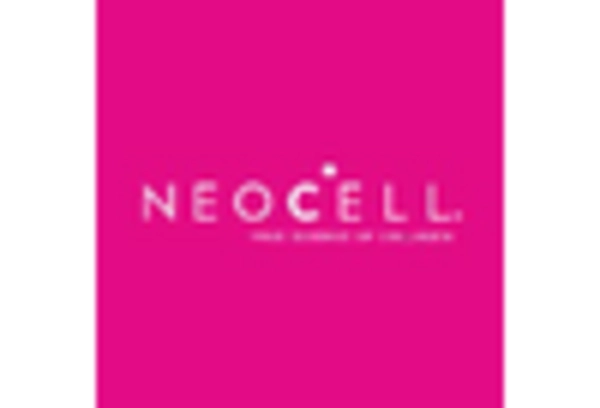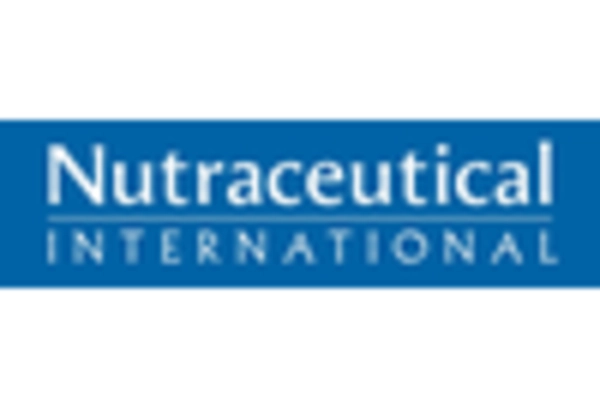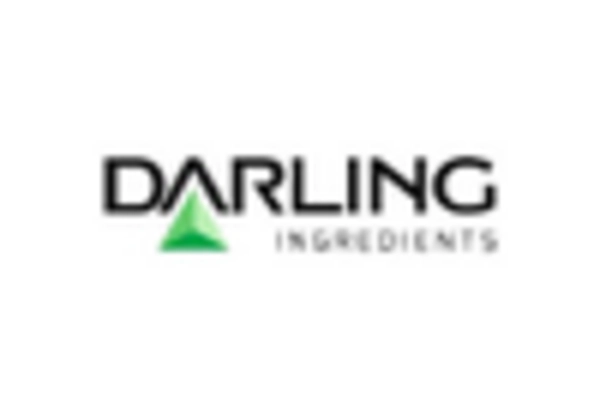Sustainability and Ethical Sourcing
The Marine Collagen Market is increasingly shaped by sustainability and ethical sourcing practices. Consumers are becoming more discerning about the origins of their products, leading to a preference for marine collagen derived from responsibly managed fisheries. This shift is prompting manufacturers to adopt transparent sourcing practices and invest in sustainable production methods. As a result, brands that emphasize eco-friendly practices are likely to gain a competitive edge in the market. The emphasis on sustainability not only appeals to environmentally conscious consumers but also aligns with regulatory trends favoring sustainable practices in food and supplement industries, thereby enhancing the market's growth potential.
Expansion of the Nutraceutical Sector
The Marine Collagen Market is significantly influenced by the expansion of the nutraceutical sector. As consumers increasingly prioritize health and wellness, the demand for dietary supplements containing marine collagen is on the rise. This sector is projected to reach a valuation of over 300 billion dollars by 2026, with marine collagen products playing a pivotal role. The incorporation of marine collagen into functional foods and beverages is also gaining traction, as manufacturers seek to enhance the nutritional profile of their offerings. This trend indicates a shift towards preventive healthcare, where consumers are more inclined to invest in products that promote overall well-being, thereby bolstering the marine collagen market.
Rising Demand for Natural Ingredients
The Marine Collagen Market is experiencing a notable surge in demand for natural and clean-label ingredients. Consumers are increasingly gravitating towards products that are perceived as healthy and free from synthetic additives. This trend is particularly pronounced in the beauty and dietary supplement sectors, where marine collagen is lauded for its skin-enhancing properties. According to recent data, the market for marine collagen is projected to grow at a compound annual growth rate of approximately 8% over the next five years. This growth is driven by a heightened awareness of the benefits of collagen for skin elasticity and joint health, leading to a broader acceptance of marine sources as a viable alternative to bovine or porcine collagen.
Growing Awareness of Anti-Aging Benefits
The Marine Collagen Market is benefiting from a growing awareness of the anti-aging benefits associated with collagen supplementation. As the global population ages, there is an increasing focus on maintaining youthful skin and overall vitality. Marine collagen is recognized for its ability to improve skin hydration, reduce wrinkles, and promote elasticity. Market Research Future indicates that the anti-aging segment is expected to witness substantial growth, with marine collagen products becoming a staple in beauty regimens. This trend is further supported by the rise of social media influencers and beauty experts advocating for marine collagen as a key ingredient in skincare routines, thereby driving consumer interest and sales.
Technological Advancements in Extraction Methods
The Marine Collagen Market is witnessing advancements in extraction technologies that enhance the quality and bioavailability of collagen. Innovative methods, such as enzymatic hydrolysis, are being employed to produce high-purity marine collagen peptides that are more easily absorbed by the body. These technological improvements are likely to lead to the development of superior products that meet the evolving demands of consumers. Furthermore, as research continues to unveil the health benefits of marine collagen, the market is expected to expand, with manufacturers leveraging these advancements to differentiate their offerings. This focus on quality and efficacy is crucial for capturing the attention of health-conscious consumers.


